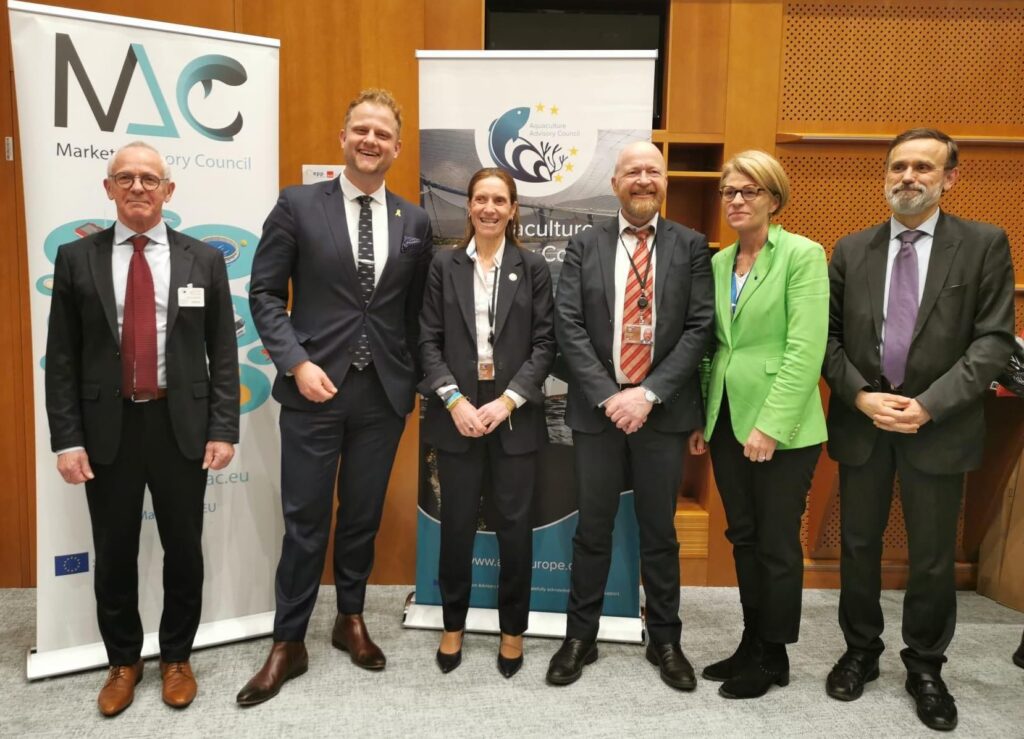Event at the European Parliament on the Role of the Advisory Councils under the Common Fisheries Policy
On 27 January 2025, the Market Advisory Council, Aquaculture Advisory Council and the North Sea Advisory Council organised an event at the European Parliament on the role of Advisory Councils under the Common Fisheries Policy.
Co-hosted by MEP Sander Smit (EP PECH committee Vice-Chair) MEP André Rodrigues (S&D coordinator), and MEP Ana Miranda Paz, the event emphasised the essential role of stakeholder groupings, such as the Advisory Councils, in bringing plurality of knowledge, experience and data to policymakers to inform their decisions.
Not only consensus-building, the main aim of these fora, but also the simple ability to share space and time for dialogue between different stakeholders is what makes them indispensable for fostering trust and mutual understanding, a much-needed feature in the present world.
As such, the Advisory Councils are the cornerstone of inclusive and balanced approach that equally considers positions of the sectors and NGOs, both aiming to achieve a sustainable management and marketing of shared fisheries and aquaculture resources.
Our Chair, Yobana Bermúdez Rodríguez, drew attention to ongoing developments in the EU market of fishery & aquaculture products as well as to our EU-wide scope and horizontal nature, which includes the entire supply chain & other interest groups.
A warm thank you to the interested MEPs for exchanging with us. We look forward to strengthening ties between the European Parliament and the Advisory Councils to ensure just and sustainable fisheries, aquaculture and markets.
